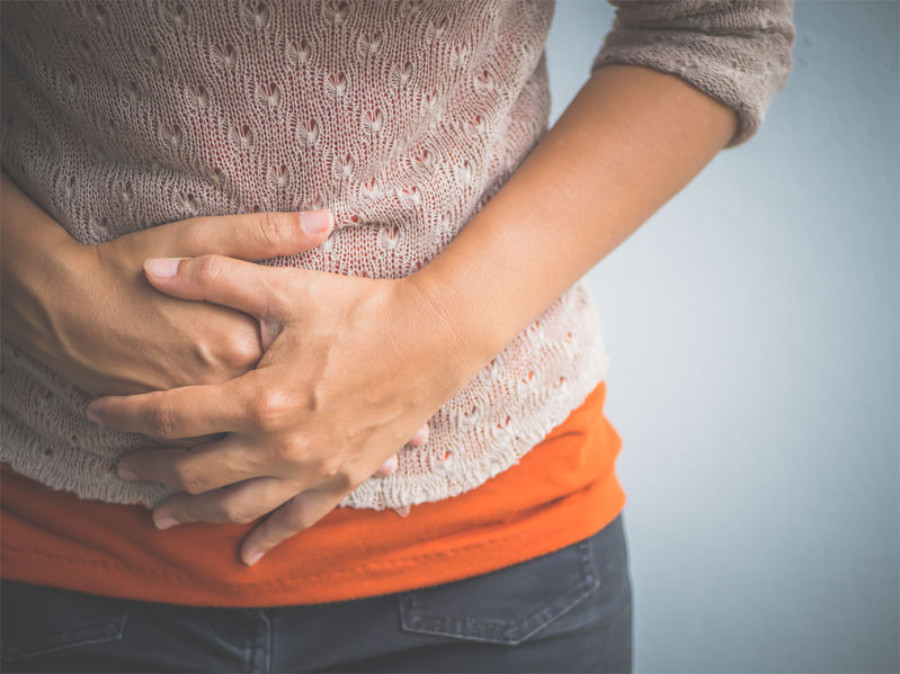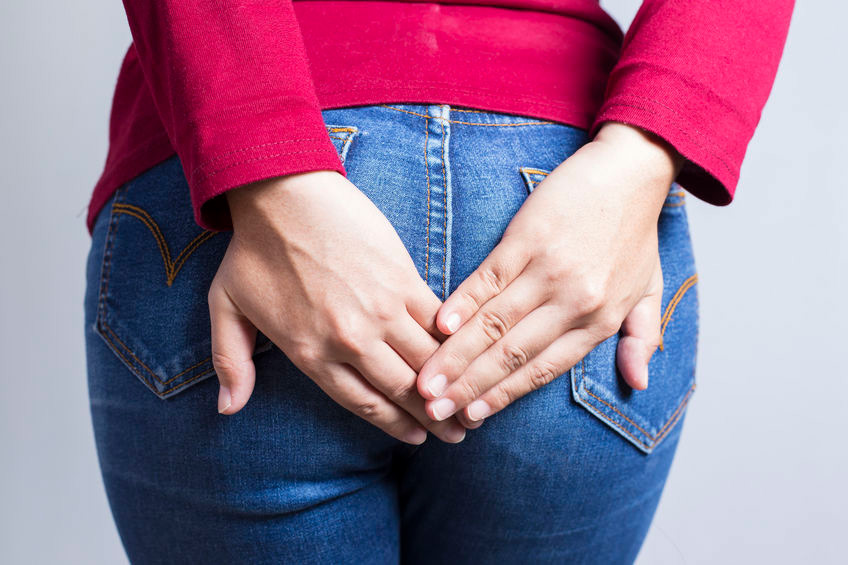We all have gas, some of us more than others, but on average we all pass wind 10-15 times per day. For some excessive gas can be embarrassing, and for others a tool for child-like humour, what should be understood is that intestinal gas can contribute to a significant amount of discomfort, pain and bloating as well.
Many people suffer with debilitating pain that disrupts their daily routine and even sleep quality.
Where does gas come from?
The majority of gas comes from swallowed air, there are therefore certain foods and drinks that can increase gas, and these include things such as chewing gum, carbonated drinks, whipped cream and egg whites. Whilst this may be contributing to increased gas, in my experience these are rarely the major causes of chronic excessive gas.
Much of gas and bloating is caused by undigested foods that ferment in the stomach. This fermentation process leads to an increase in gases such as methane and hydrogen sulphide. A very common but often overlooked issue is that of Small Intestine Bacterial Overgrowth or SIBO for short.
What is SIBO?
SIBO is one of the main causes of IBS and occurs when there is an accumulation of normal bacteria in the small intestine. The small intestine should have low bacterial counts, however in SIBO the levels raise and bacteria compete for food, impacting digestion and absorption. In some people this may contribute to issues relating to nutrient insufficiencies and in some cases protein, fat or carb malabsorption.
The issue with SIBO is the location of the bugs and not necessarily the type of bacteria. Often times the SIBO develops as a result of bacteria migrating from the large intestine into the small intestine. SIBO can be both an underlying cause of symptoms or just another symptom of another underlying issue.
The main SIBO symptoms are bloating and flatulence as well as pain and changes in bowel habits such as consistency of stools or number of times you need to visit the bathroom. Other symptoms can occur such as reflux, nausea and cognitive impairment and mood changes to name but a few.
Other causes of gas
As well as SIBO there can also be other possible causes of increased intestinal gas. High-sulphured foods such as those form the cabbage family, dried fruits and beans are some of the biggest causes of gas. Foods that are high in fermentable carbohydrates can also contribute to intestinal gas, particularly when SIBO is present. These individuals may notice increases in symptoms with foods like onions, garlic, apples, beans & lentils etc. In some cases a low FODMAP diet may help alleviate symptoms, however this rarely addresses the underlying cause and can also be quite restrictive, hence it is often best to confirm an actual bacterial overgrowth before embarking on a restrictive therapeutic diet.
Other issues might include impaired production of digestive acids and enzymes causing changes in intestinal pH favouring increased levels of bacteria in the small intestine. This same effect can also occur as a result of antacid/Proton Pump Inhibitor (PPI) use such as omeprazole. Other causes might include reduced bowel motility resulting from nutrient insufficiencies such as magnesium or increased levels of stress resulting in over-stimulation of the sympathetic (fight or flight) nervous system.
Sometimes just a change in diet can be enough to increase intestinal gas. Adopting a diet richer in fibre may actually contribute to increases in gas, thus when adopting a diet higher in fibre it should be done gradually. If bowel tolerance is exceeded gas and flatulence will often develop. Over time the gut can adapt to these changes in diet without any negative responses and often just favourable responses with regards to long term digestive health. In the case of SIBO higher fibre foods may cause on-going issues until the SIBO is addressed.
An intolerance that can also contribute to excessive gas and flatulence is lactose intolerance, so if you are eating or drinking dairy produce and noticing increases in symptoms following consumption then it should at least be on your radar as a possible underlying cause.
What can I do about intestinal gas?
Testing
Running some labs initially to rule out SIBO is typically a good idea and often overlooked. In some cases a good stool test may also be warranted. For SIBO a 3-hour lactulose breath test is ideal, looking for sufficient increases in hydrogen, methane or both together for a positive result.
I also see benefit with urine organic acids testing as a way of ruling in or out bacterial or fungal overgrowth of the intestines. This test is a little less accepted in conventional circles, but does carry some clinical relevance.
I personally see little benefit with food sensitivity testing for intestinal gas. Not only are most food sensitivity tests debatable in terms of their accuracy, food sensitivities rarely are an underlying cause of intestinal gas as it is nearly always associated with microbial imbalances/overgrowths or some type of digestion/absorption issue.
Food Changes
Elimination of certain foods for a period may be warranted and may be useful in guiding the therapeutic approach as well. You may want to start with lactose-containing foods, thus the removal of most dairy foods to see if that alleviates symptoms. If it does then to be sure reintroduce them back in and look for a return of symptoms. In many cases a lactose intolerance is just a confirmation of an underlying digestive imbalance, thus not all lactose intolerances are long term and often addressing the underlying digestive imbalance will result in an improved tolerance of lactose.
Other foods to consider removing are the sulphur rich foods mentioned previously. If SIBO is suspected then sugar alcohol foods such as xylitol, sorbitol, isomalt & maltitol should be eliminated or significantly restricted. You may have to become a bit of a label detective as this can be found in all sorts of places typically used as sweetening agents. Gluten is another food that seems to crop up and in some cases may be a contributing factor. A short elimination of gluten and a general elimination diet may be useful to test the theory of food reactivity playing a part in the symptoms.
If you recently increased the fibre in your diet then you may want to look at reducing this just a little to see if this alleviates your symptoms.
Addressing SIBO
If SIBO is present and confirmed with testing then there are a few options available to you. Herbal antimicrobials like berberine, garlic/alicilin & oregano oil can work well alongside the FODMAP diet or a combination of the FODMAP and Specific Carbohydrate Diet. Alternatively there are specific antibiotics that are not absorbed into the blood stream that can be useful against SIBO, however do not expect a short one off course of antibiotics to do the trick, dietary changes and focus on digestive health may be warranted for some months to truly get the levels right back down again without relapse.
Probiotics often add fuel to the fire so in most cases I would tend to avoid probiotics. Having said that in a small amount of cases I have seen probiotics help SIBO, or at least be useful following antimicrobial therapy.
Digestive Support
Supporting the production of acids and enzymes or even embarking on acid and enzyme therapy may be useful. Using bitter foods or bitter herbal tinctures can be an effective natural way of increasing the natural production of acids and enzymes. The most basic step in optimising acids and enzymes is mindful eating. Ultimately this means being at one with your food, focusing on it and taking your time, chewing thoroughly assisting your digestive system as best as you can.
Avoiding Alpha-glucosidase inhibitors
This enzyme assists in the breakdown of carbohydrates. Some natural foods and medications have the ability to inhibit alpha-glucosidase. The medications are often associated with obesity and diabetes and try to assist these conditions by reducing the digestion and absorption of carbohydrates only to lead to digestive health issues. Foods rich in the alpha-glucosidase inhibitors include spicy foods like chilli, beans, onions garlic & corn. Avoidance of these foods or introducing a digestive enzyme may be useful.
Structural/Musculoskeletal Issues
Rarely considered in digestive health cases is the influence of the musculoskeletal health and the nervous system. In some cases I have seen significant improvements in gastrointestinal health and IBS type symptoms with structural manipulation and visceral massage therapy by a well-trained osteopath or physiotherapist.
Symptomatic Relief
As well as addressing underlying causes a respect for some symptomatic relief is warranted.
- Take out foods you know to be problematic and consider removing other foods listed above.
- Reduce fibre in the diet.
- Consider the introduction of digestive enzymes.
- Consider the use of chlorophyll taken with meals to help reduce gas.
- Use the spices ginger, fennel and anise. Use the fresh stuff or dried to make a drink that you can have following a meal.
- Use charcoal tablets for short periods for symptomatic relief.
We hope you found this article informative. If so please feel free to share it. If you are interested in gaining some 1-2-1 guidance then please fill out the contact form below.
[widgetkit id=”616″]
Contact Steve Grant Health
To learn more out how Steve Grant Health can assist you on your journey, please fill out the enquiry form below.
Please note that depending on your specific circumstances and goals, Steve may recommend that you work with one of the specialist practitioners within his network of trusted professionals.
If you have been referred by a clinician, please complete the form and ensure that you state who has referred you or have your practitioner email Steve direct to make a referral that way.
Click the button below to open the client enquiry form:
[widgetkit id=”643″]

















